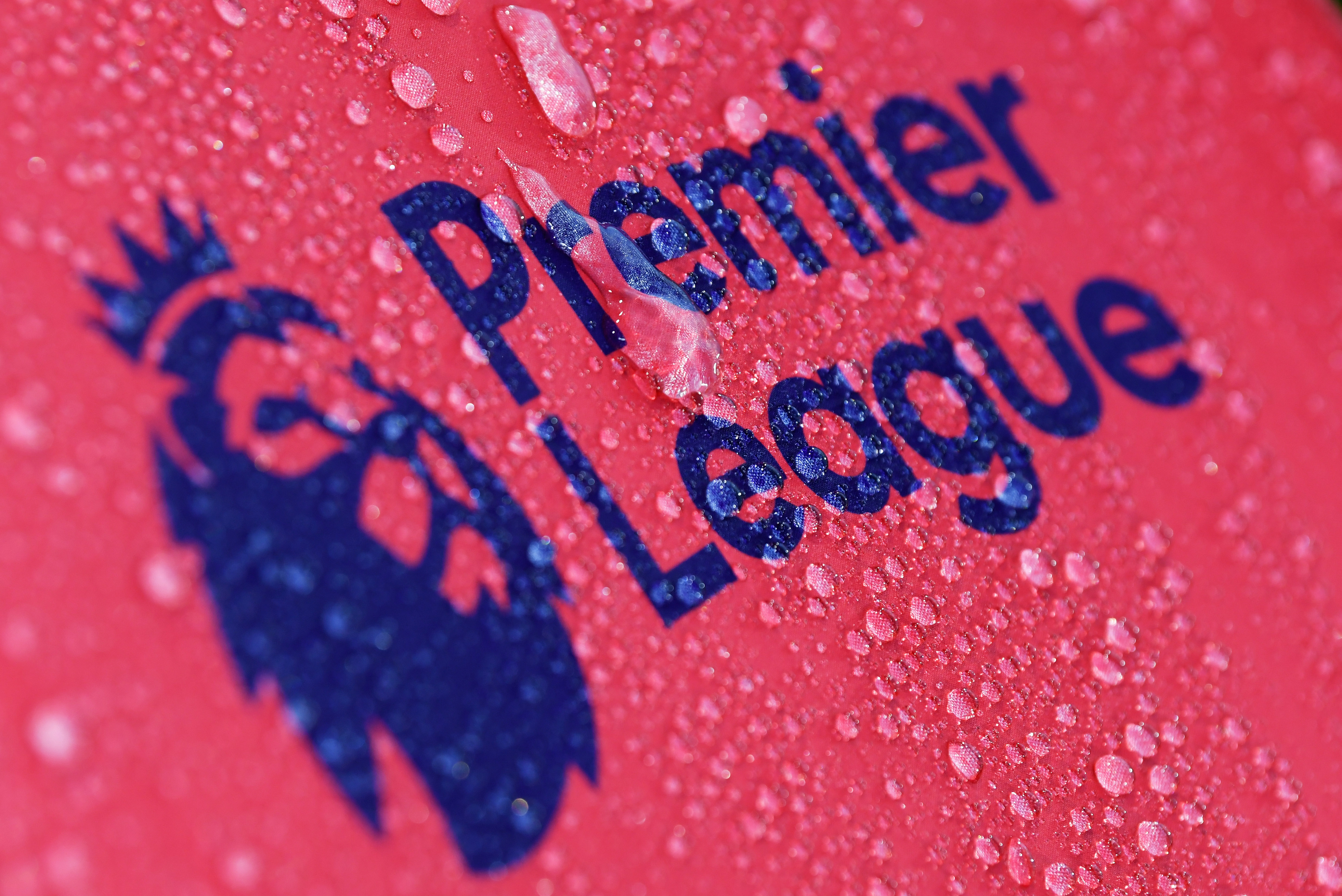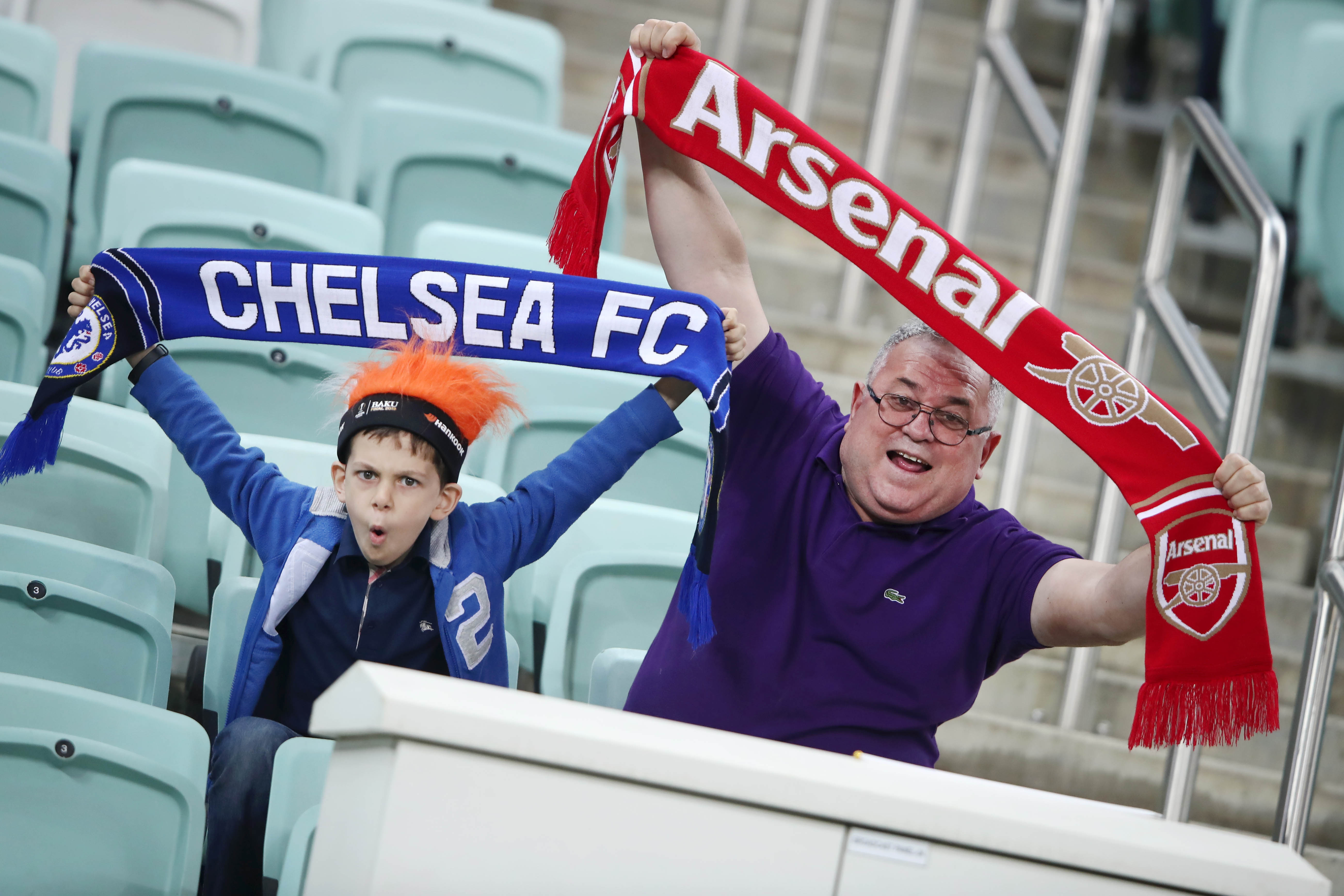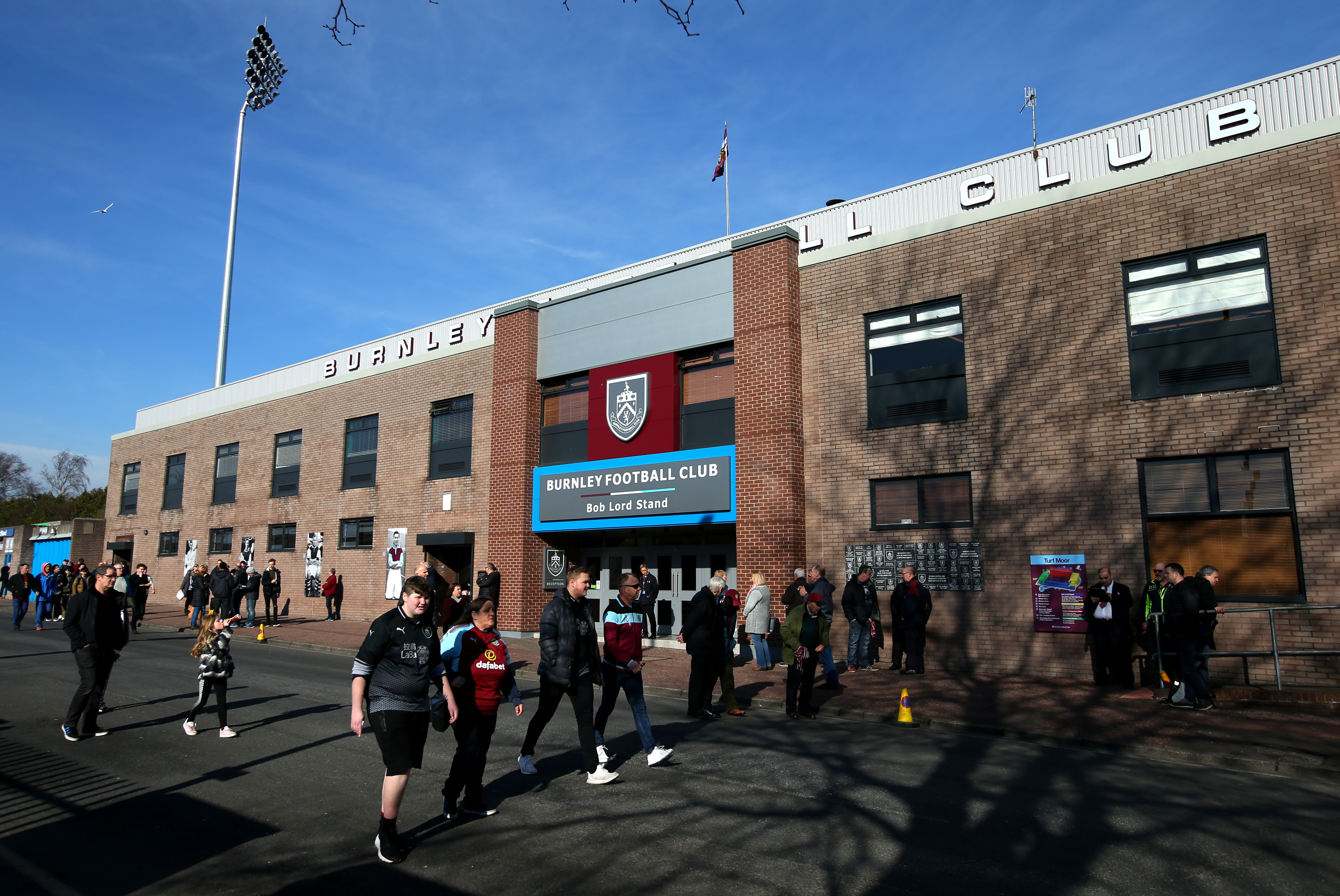a The myth may have been better known than the truth, but the effect was the same: Dynamo became a rallying point in the darkest days of occupation, and at least until fragmentation, retained a patriotic value as the team of all Ukraine.FC Start catalysed the growth of Ukrainea s greatest ever football team.” – Jonathan Wilson in a Behind The Curtain: Travels In Eastern European Footballa
There are things which plague the human spirit, things such as war, famine, death – powerful enough to subdue the strongest man amongst us. Then there are things which energize the human spirit, things such as inspiration, motivation, a positive impulse – powerful enough to bolster the weakest man amongst us.
The second World War was a clear reflection of Nazi propaganda, powered by the motto of ‘superiority of Aryan race’ and masterminded by a mad man, named Adolf Hitler. It is no secret that the World War scarred the bravest of braves, drove fear into the hearts of gallant men, whilst claimed many casualties. The horrors and atrocities witnessed, deep into Nazi lines, in their holocausts could perhaps be only compared to a magnified version of horrors inflicted by Vlad Tepes, commonly known as Dracula.
While the world war has many incidents which could easily drive fear into the hearts of the listener or perhaps send shivers down the spine – a failed imitation of the actual horror, far more worse and horrendous – it also features stories of inspiration, rebellion, courage and bravery.
The inspiration part, is often as strong and resolute as Adolf Hitler’s Tiger tanks – which wreaked havoc back in the early 1940s- and analogous to the infamous tanks, has the capacity to jolt and motivate troops even now.
Although stories of personal bravery and courage which were often seen as a means to inspire troops against Nazi supremacy, notably highlighted in Russia, a Vasily Zaytsev story used as a masterclass by one Nikita Khrushchev comes to mind. Incidents of a collective bunch of people resisting the Nazi rule by means of sport, although were few, had the power to motivate the meekest of all men.
Almost every city that the Nazis occupied, carried out it’s own rebellion. The French had their resistance in parts of the country and so did the Polish. But the city of Kiev, launched their rebellion through the ‘beautiful game’.
Football was something in which the Ukrainians excelled. The late 1920s saw a mass exodus of players and fans alike into football and the country witnessed the birth of one of it’s footballing powers in Dynamo Kiev.
After the invasion of Kiev, which lasted three month and finally succumbed under Nazi rule on 19th September 1941, the Dynamo team faced the perils of war. While some fell victims to their wounds, others became prisoners of war. All in all, the team was not whole again after the Nazi invasion.
The Nazis persistent in their quest for Aryan supremacy and vigorous in their methods, killed more than 33,000 Jews in two days at the ravine of Babi Yar after taking control of the city. To pacify the populace with a spirit of normality, whilst distracting them in the process, the captors held a series of football matches in June 1942.
The formation of FC Start effectively began after this announcement. With the Dynamo team disbanded, Nikolai Trusevich – Dynamo’s goalkeeper before the war – indulged himself in a personal quest to thwart Nazi spirits by football.
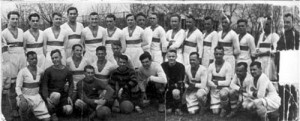
Nikolai Trusevich was an imposing man. His tall frame, believed to be of more than six feet mixed with his ability to sweep his lines, made him an ideal choice for a goalkeeper. Trusevich took up to arms when news of a Nazi invasion propagated into his ears. Captured as a prisoner of war, Nikolai was released after he pledged allegiance to the Nazi regime and signed documents for it’s evidence.
After returning to a battle scarred Kiev, Nikolai found work difficult. The city was already under the influence of Nazi regime and unemployment was at a new high. Coincidentally, Josef Kordik, owner of a bakery named number three, found Nikolai roaming the streets of Kiev and immediately handed him a jainator’s job. Soon, the pair of Nikolai and Josef, started to identify current and former football players and recruited them to be a part of the bakery – a cover for being a part of the football team.
The first player to be recruited by Trusevich was Makar Goncharenko.Goncharenko was joined by fellow Dynamo teammates, Mikhail Putistin, Feodor Tyutchev and Ivan Kuzmenko. Alexei Klimenko, Mikhail Sviridovsky and Nikolai Korotkykh, soon followed. Lokomotiv Kiev’s Vladimir Balakin, Vasiliy Sukharev and Mikhail Melnik also joined these Dynamo players, to give birth to FC Start.
FC Start, however faced the dilemma of participating in the set up league or not, as many protagonists saw their involvement in the league as a pioneer for Nazi rule. But Nikolai Trusevich, stuck to his roots and convinced players with a simple set of words.
Nikolai said, “a We do not have weapons but we can fight with our victories on the football pitch a for a while the members of Dynamo and Zheldor (Lokomotiv) will be playing in one color, the color of our flag. The Fascists should know that this color cannot be defeated.a
This was enough to ignite lost flames within the team.
Despite being undernourished and working long night shifts, FC Start defeated a much fancied Rukh side by seven goals to two, in their first league match. This win, enraged Nazi authorities so much so that they banned FC Start from training in Rukh’s stadium. The sparkle of fire till now had spread through the team like forest fire and the team established their own identity, on and off the pitch. Nikolai’s men embarked on an extraordinary campaign and dismissed teams for good.
June 21 a Hungarian Garrison a 6:2
July 5 a Romanian Garrison a 11:0
July 17 a PGS (Germany) a 6:0
July 19 a MSG. Wal (Hungary) a 5:1
July 26 a MSG. Wal (Hungary) a 3:2
August 6th a Flakelf (Germany) a 5:1
By this time, FC Start had became a symbol of hope. Football suddenly became a premier harbinger of spreading rebellion and FC Start’s campaign was seen as a ‘tact’ to thwart Nazi supremacy by the regime. However, for the city of Kiev, FC Start became an embodiment of sanguineness and they understood that the Nazis were not invincible like they suggested, in the populace.
After defeating Flakelf, which was one of the elite teams Nazi regime fielded, players of FC Start became heroes. However, this heroic status analogous to that of a god, was cut short by the regime’s announcement of a re-match. The posters which indicated a re-match had been boldly embedded with ‘Football’ and ‘Revenge’.
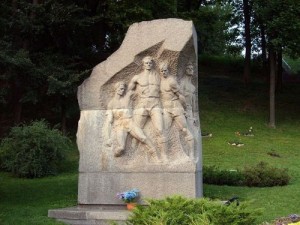
Flakelf, reinforced their side and elite players from the corners of Nazi empire were included in the rematch. Given that the match was played just three days after FC Start first defeated Flakelf, the Nazi regime expected Ukrainian players to be in bad shape, as a consequence of their long night shifts and toils in the bakery.
According to accounts, prior to the kickoff, the referee – an SS officer, visited the small FC Start changing room and blatantly said, a I am the referee of todaya s game. I know you are a very good team. Please follow all the rules, do not break any of the rules and before the game greet your opponents in our fashiona . The hand writing on the wall was clear, FC Start were expected to lose.
The match was supposed to be a staged event, which clearly reflects the public outreach FC Start had in Kiev and also justifies their stature as ‘beacons of hope‘ in the Ukrainian society.
The players were also asked to greet the Nazi officers with a traditional Nazi salute. This marked the beginning of FC Start’s players’ defiance. Instead of dishing out a Nazi salute, they screamed a FizcultHuraa which roughly translates to a long live sport.a It was an act of rebellion.
Minutes into the match, it was clear that the referee was prejudiced in his notion of FC Start. An SS officer, the referee blatantly carried on with the game, even after deliberate fouling by the German team. Nikolai, the tall imposing goalkeeper, suffered a gash above his eyes as a consequence of Nazi foul play. Flakelf took advantage of his condition and scored the first goal of the game.
However, the game was far from over. Ivan Kuzmenko scored from close range and then Makar Goncharenko registered a quick brace to give FC Start a 3-1 lead over their German opponents. The match which seemed to be etched with German authority, started to run out like loose sand in clenched fist, for Flafek. FC Start went into the tunnel, leading 3-1 at halftime.
The defining moment of the second half came from Alexei Klimenko, who like his flamboyant self, dribbled pas a hapless Flakfel defense, rounded the Nazi goalkeeper, but instead of kicking the ball home, he hoofed the ball back up to the half way line. The humiliation of the Nazi regime was complete. The match dubbed as ‘Death Match‘ ended 5-3, with FC Start once again emerging as victors.
Although the Ukrainian side played one more match after their win in Zenit, against Rukh, who they hammered 8-0, it was evident that the Nazi regime identified these set of footballers as a potential threat to their resolute empire.
On 18th of August 1942, the infamous Gestapo arrived at Bakery number three, now home of almost all FC Start players and read out the list of names required for questioning. Unsurprisingly, the list consisted names of FC Start’s players. Members of the team were sent to a concentration camp outside of Kiev in Syrets. Six months later, three pillars of the FC Start team met their maker. Alexei Klimenko, Ivan Kuzmenko and Nikolai Trusevich were all killed as a result of a Nazi declaration which prompted Paul Radomski, the commander of the concentration camp, to round every prisoner and shoot dead every third one. Nikolai Trusevich, was believed to be wearing the same FC Start goalkeeper jersey, when he was shot.
The legend of FC Start soon began to fade after most of the players were either killed or ran away in an attempt to save their lives.
In terms of pure statistics, FC Start played nine, won nine, scored 56 goals and conceded just 11. It became a symbol of hope when everything else seemed failing. It became a symbol of resistance. And most importantly, It became a source of inspiration, in times as perilous as the dark ages.
The extraordinary story of FC Start, remains a legend to this day. A legend, which has the capability to inspire people, even today.


